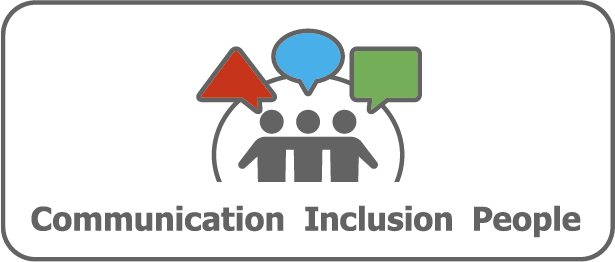We all find communication harder when we are under stress, tired or unwell.
Thousands of people in Scotland prefer not to use speech, reading and writing to communicate.
Communicating in inclusive ways means …
Your organisation is person centred
You communicate in ways that work for the person. You don’t expect the person to fit in with your standard communication.

Your organisation is respectful, kinder and rights based
- No one likes to be overlooked, left out or treated unfairly.
- When a person has a right to get a service they have a right to expect that service to communicate effectively with them.
- It is the right thing to do ethically and morally.

It is good for business
- You reach more people because more people find communication with you easier.
- More people can interact with you where, when and how they want.
- You and your customers save time. Communication that works makes best use of everybody’s time and effort. It reduces the chance of costly mistakes and complaints.

You are doing what the law and national policy says you must do

Law in Scotland
Consumer (Scotland) Act, 2020 says “Consumer Scotland” must recognise the importance of inclusive communication. Consumer Scotland will check that public and private businesses protect all customers from unfair practice.
United Nations Convention on the Rights of the Child (Incorporation) (Scotland) Bill (as passed in March 2021) means every child must be free to express their thoughts and opinions and to access all kinds of information.
Augmentative and Alternative Communication (AAC) Law 2016 (Health, Tobacco, Nicotine etc. and Care Scotland Act) says any person who has difficulty speaking has a right to communication equipment, and support in using that equipment.
Law in the United Kingdom
Equality Act 2010 requires all information to be accessible.
Disability Discrimination Act 2005 prohibits discrimination against people with a disability.
Human Rights Act 1998 says that public authorities have a legal obligation to uphold our human rights including freedom of opinion and information.
